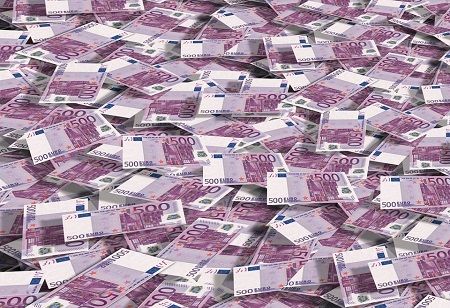
The euro hit a nearly seven-month low against the U.S. dollar on Monday, driven by investor concerns over potential tariff policies under the incoming White House administration, which could pose economic challenges for the eurozone. Since Donald Trump secured the U.S. presidency last week, the euro has experienced a steady decline as markets anticipate possible tariff implementations that could disrupt EU-U.S. trade. The dollar rose 0.69% against the yen, reaching 153.69, recovering from last week’s high of 154.70, though tempered by concerns over possible Japanese intervention. On Nov. 6, it briefly reached 154.68, its highest level since July.
Reports on Friday indicated Trump may be considering Robert Lighthizer, known for his trade protectionism, for a former role in trade policy, further pressuring the euro. However, sources close to the situation noted that Trump hasn’t officially requested Lighthizer’s return to the trade agency.
“This is just a continuation of market reactions since the election,” said Eugene Epstein, trading head at Moneycorp in New Jersey, emphasizing that “nations facing tariff threats are struggling against the dollar.”
The euro dropped 0.61% to $1.0654, briefly reaching a low of 1.0629, a level unseen since mid-April. Meanwhile, the U.S. dollar index, which measures the dollar’s strength against a group of major currencies, hit post-election highs. It climbed 0.48% to 105.51, momentarily peaking at 105.70, its highest level since July. After Trump’s win, the index surged over 1.5% to 105.44.
“There’s a sense that markets are increasingly betting on a ‘red wave’,” noted Bipan Rai, managing director at BMO Global Asset Management, referring to the Republican majority backing Trump. “This trend is supportive for the dollar.”
Proposed policies from President-elect Trump, such as tariffs and tax cuts, are projected to drive up inflation and bond yields, while potentially curtailing the Federal Reserve’s ability to ease monetary policy, all of which strengthens the greenback.
“An important question post-election is what priorities will dominate the Trump administration’s agenda,” Rai continued, adding that “tariffs are likely to take precedence, which Trump could implement with limited Congressional approval.”
The dollar rose 0.69% against the yen, reaching 153.69, recovering from last week’s high of 154.70, though tempered by concerns over possible Japanese intervention. On Nov. 6, it briefly reached 154.68, its highest level since July.
We use cookies to ensure you get the best experience on our website. Read more...